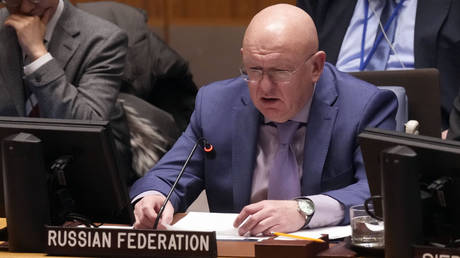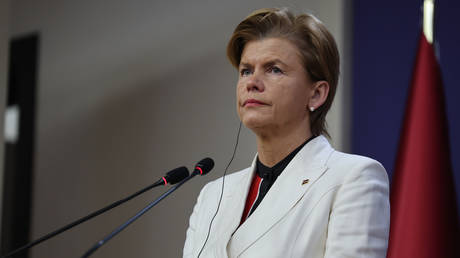Ensuring the overall health and well-being of all people through the establishment of an effective healthcare sector is an essential part of efforts to eradicate poverty, drive robust socio-economic growth, achieve sustainable development, and create thriving, prosperous communities.
Importantly, as has been established by the World Health Organization, countless researchers, and innumerable case studies from different contexts, young health professionals play a key role in maintaining and improving the healthcare sector of nations worldwide. This is particularly true in the case of Eritrea.
Against the wider backdrop of a young, growing population, alongside rapidly evolving national healthcare challenges and different needs, the role and multifaceted contributions of deeply motivated, highly skilled, and well-educated young professionals remains indispensable. For several decades, young health professionals in Eritrea – ranging from doctors and general or specialist practitioners of all kinds to nurses, midwives, dentists, and pharmacists, among others – have offered fresh views, insights, and critical perspectives, a plethora of innovative ideas, and a deep-rooted, strong eagerness to help address the various health challenges facing the country. The benefits of their participation and control role within Eritrea’s national health sector are multifaceted, and over the past several decades the country’s young health professionals have positively impacted the nation’s overall health, well-being, and living standards in a variety of ways. (Due to space constraints, the following paragraphs offer only a brief review.)
To begin, Eritrea’s young health professionals, freshly graduated from the nation’s network of health-related training institutions (including those based at Orotta, in Asmara, and Mendefera, among several others), are equipped with the latest body of knowledge and best practices. Crucially, they are well-versed in modern medical technologies, diagnostic techniques, and treatment methods, all of which combine to allow them to apply contemporary practices and approaches to healthcare. It goes without saying that this is vital in a young country like Eritrea, where the healthcare infrastructure and system is still developing, and there remains a considerable need to bridge the gap between traditional methods and modern medical advancements. The great adaptability, ability, and willingness of Eritrea’s young health professionals to learn new systems quickly have made them a critical national asset, particularly as the country works to improve its health information systems and clinical protocols.
Second, alongside the vast general academic and theoretical knowledge that they accumulate through years of deep study and hands-on, practical training, Eritrea’s young professionals are increasingly tech-savvy and blessed with the capacity to utilize new, modern technologies that serve to enhance healthcare delivery in the country. The integration of these innovations and technologies to existing frameworks or contexts can serve to streamline patient care and also extend services to hard to reach areas in the country.
Importantly, these innovations are essential in overcoming geographical barriers that limit access to healthcare for those residing in remote or rural regions, which continue to make up a significant portion of the nation’s population. By leveraging emerging and leading innovations and technologies, such as newer digital tools, Eritrea’s young health professionals are positively contributing to the realization of social justice and equality within national healthcare – ultimately allowing more people of all backgrounds to have better access to essential services.
Additionally, young health professionals in Eritrea are heavily involved in a range of public health initiatives and campaigns, many of which are focused on preventive care and approaches. Through their active involvement in public awareness campaigns focused on maternal and child health, nutrition, the prevention of communicable diseases, and addressing the increasing prevalence of non-infectious diseases (such as diabetes, heart diseases, and cancer), they contribute significantly to encouraging positive socio-behavioural changes and improving public health outcomes. As an example, the central role that young health professionals play in nationwide vaccination drives (such as those focused on HPV or those targeted at infant and child health) and health education initiatives has helped to reduce the incidence of preventable diseases, strengthen reproductive and sexual health, and led to an array of other positive health outcomes. Again, all of this is of particularly far-reaching significance for the Eritrean context, since communicable diseases, like malaria, tuberculosis, and respiratory infections, have historically been a considerable public health challenge, while the prevalence of non-infectious diseases has steadily risen in recent years.
Of course, with Eritrea, like many other African and Global South countries, being affected by the various challenges of the brain drain (where highly skilled professionals seek opportunities abroad), the unwavering commitment, dedicated service, and diverse contributions of young health professionals in the country cannot be overstated. Their fierce passion and unwavering dedication to raising the standards of the local healthcare system and improving the health and wellbeing of locals nationwide has been not only a fundamental factor in driving the country forward but also extremely inspirational, admirable, and humbling.
Overall, Eritrea’s young health professionals have been integral to the general advancement of the country’s healthcare sector, supported wider developmental progress, and played a positive role in creating a more sustainable and equitable system for future generations.





+ There are no comments
Add yours